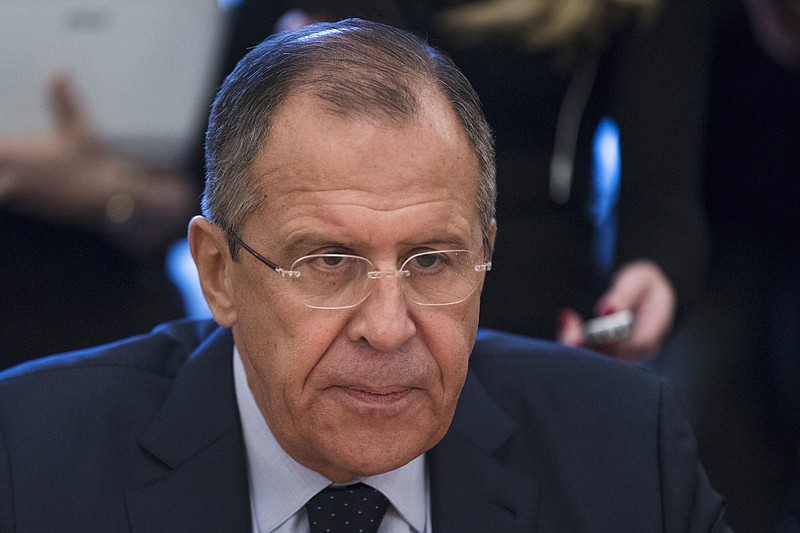YEREVAN, Armenia (AP) - Russia's foreign minister said Monday the next round of Syria talks expected to be held this weekend must not focus squarely on demands for Syrian President Bashar Assad's resignation, which he called a "simplistic approach."
Sergey Lavrov, speaking on a trip to Armenia, said the talks should focus instead on reaching consensus on who should represent the Syrian opposition and who should be considered extremists.
At the initial talks in Vienna on Oct. 30, the U.S., Russia, Iran and more than a dozen other nations agreed to launch a new peace effort involving Syria's government and opposition groups. But they carefully avoided the issue of when Assad might leave power - a dispute at the heart of the nearly five-year-old conflict that has claimed more than 250,000 lives.
British Foreign Secretary Philip Hammond said there is "quite a lot going on" behind the scenes ahead of this weekend's talks, and U.S. Secretary of State John Kerry "is highly active in trying to promote this process." But Hammond stressed to reporters at U.N. headquarters in New York that no one should underestimate "the scale of the challenge."
Hammond cited the "fundamental difference" between Britain, the U.S. and other countries that believe Assad must leave office as part of the transition process, and Syrian allies Russia and Iran "who believe that he should be able to take part in a future election and if that election decides that he should go, then he goes at that point."
Lavrov said some participants in the initial round of Vienna talks have kept pushing for Assad to step down instead of focusing on who should participate in negotiations.
But Hammond said "we do not believe it is going to be possible to bring the opposition groups into the political process and have an effective cease-fire unless we have a clear point at which President Assad will depart at some point during the transitional process."
The communique issued after the Oct. 30 meeting refers to the roadmap to peace adopted by key nations in Geneva in June 2012 which calls for the formation of a transitional government with full executive powers "on the basis of mutual consent," leading to elections.
It asks the U.N. to convene representatives of the government and opposition "for a political process leading to credible, inclusive, non-sectarian governance, followed by a new constitution and elections" under U.N. supervision, with all Syrians including the diaspora eligible to participate.
U.N. special envoy for Syria Staffan de Mistura, who has been trying to set up working groups on key issues to prepare for the talks, is scheduled to brief the U.N. Security Council behind closed doors on Tuesday afternoon.
Lavrov also called for wider participation in the Vienna talks, saying that after this weekend's meeting, the Organization of Islamic Cooperation and the Arab League should be invited to attend.
___
Associated Press writer Edith M. Lederer contributed to this report from the United Nations.
